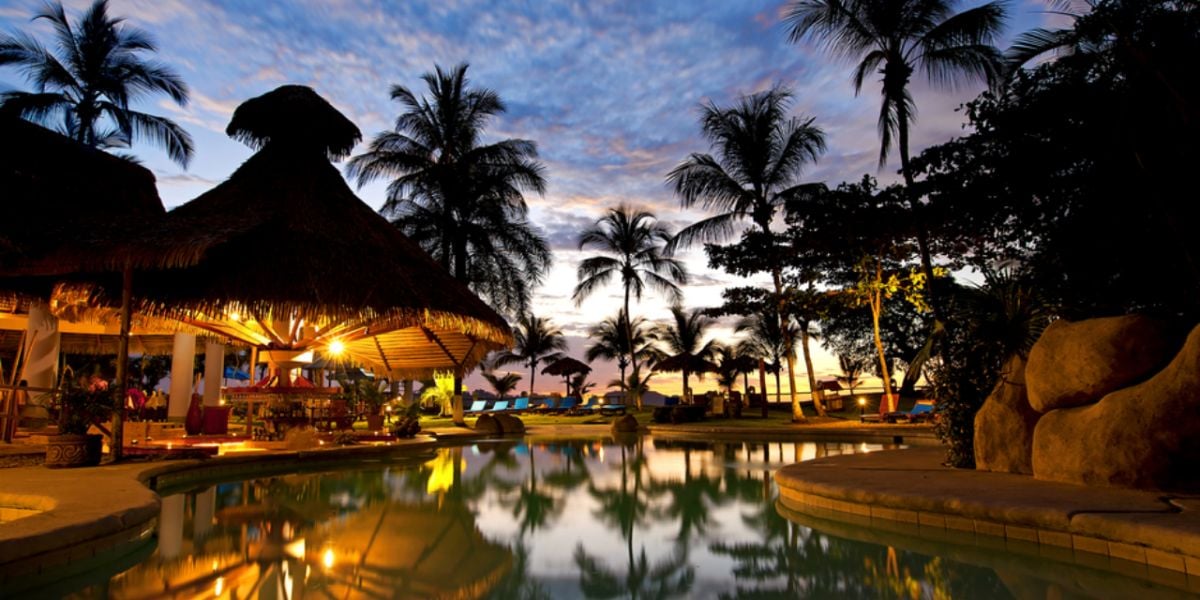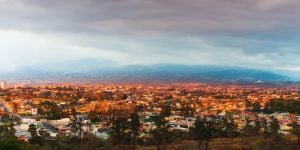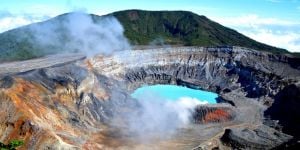
You may find yourself rushing to enjoy the Pura Vida lifestyle — a laid-back philosophy of relaxing, having fun, cherishing simple pleasures and spending quality time with loved ones — but take it from the Ticos and take your time when it comes to getting things done in Costa Rica, especially when it comes to looking for accommodation. Read this article to find out more.
Be sure to do your research before you decide where to live, and explore different neighbourhoods before you choose where to call home. Once you have found accommodation that meets your budget and requirements, visit the area at different times of the day so that you won't have any unwanted surprises once you've moved in.
Although Costa Rica is one of the safest spots in Central America, pickpocketing and muggings can still be relatively common in city centres. So, for the sake of your safety, you may wish to research the safest neighbourhoods and particular areas to avoid.
Costa Rica also has a good school system, thanks to the government making the wise decision to pump funds into education rather than the military after it was abolished. While there are some very good public schools, most of the bigger cities also have at least one international school. So, if you are moving to Costa Rica with a family, you may wish to live close to your children's school, as well as to your place of work. Finding an area that is close to your most frequented destinations is advisable to save you a lot of time in traffic at peak hours. And, if you don't plan to have a car when you're in Costa Rica, it's important to live somewhere that is well connected by public transport.
If you live in a neighbourhood that is popular with expats, you may enjoy the benefits of having an easily accessible network of potential friends on your doorstep. Alternatively, if you choose to live in a distinctly Costa Rican community, you will likely have friendly local neighbours, as well as opportunities to integrate and experience a traditionally 'Tico' way of life.
If you are looking to buy a property in the country, then you may wish to consider renting for a while first in order to acquaint yourself with a particular community, local amenities and transport before you part with your capital. Renting is also a good way to try out different neighbourhoods, price ranges and types of housing, with relatively low commitment.
Types of accommodation
You can find a wide variety of properties to rent in high-density areas, such as the beaches and San Jose. And there are particularly well-established https://www.expat.communities in Rohrmoser, Esczu, Guanacaste, and Jaco. Residential homes can range across the country from condominiums and townhouses in gated communities to luxury mansions by the beach or in the mountains. And your choices are likely to be defined by your budget and criteria. You will generally find housing varies greatly across the country, and many neighbourhoods comprise of a mix of expensive houses and modest residences.
If you're interested in integrating into Costa Rican culture, you can even opt to rent a room in a Costa Rican's house for a period of time. Many Costa Ricans have a spare bedroom and are happy to rent to foreigners to earn some extra income. This type of accommodation not only offers an authentic Costa Rican experience and is a great way to make friends, but it also provides the flexibility to switch houses every couple of months, whether you wish to travel or simply get to know different areas. In this homestay situation, meals and even a laundry service can be included ' just negotiate with the family in advance and be clear on expectations.
Rentals in Costa Rica can range in duration, from short-term to long-term lets. Many come furnished, but you can rent unfurnished if you intend to stay for a long time in the country and wish to buy your own furniture. Some rentals may include services, such as electricity, water, cable TV and internet, but do be aware that water and power outages are quite common if you don't live in big cities.
Depending on the size, location, fixtures and furnishings, simple apartments can range from around US$400 to US$900 per month, while condominiums tend to be considerably more expensive (especially the luxury ones), as they come with services, common areas, and amenities, such as a swimming pool or gym. Houses can also vary greatly in price and can set you back anything from US$700 to US$1,800 for a small house, and over US$3,000 for larger houses or villas.
Requirements
Although by law, a rental contract should be for three years, most contracts are more flexible, lasting for a year and requiring one month's rent as a deposit. You should be prepared to lose this deposit, even if you don't break your contract. However, as a tenant, you do have a lot of rights and it is very difficult for a landlord to kick you out without a legal battle. However, if you are ever found guilty of not paying your rent, you could stand to lose an asset, such as your vehicle, to compensate the owner.
Do be aware that a lot of accommodation in Costa Rica isn't pet-friendly, so you may have to adjust your expectations and requirements if you do move to the country with a dog or cat.
Make sure that all requirements and conditions are stipulated in the contract, and ensure that any future changes to your rent are also clearly stated (make agreements about any increases in advance, and include details, such as frequency and amount). Rental contracts tend to be in Spanish, as legal documents in Costa Rica are only valid if they are in the official language. If it is not in Spanish, you may need to have it translated.
Find accommodation
It's advisable to start your search by browsing the online classified sections of The Tico Times, La Nacion, Buscomicasa and Encuentra24. You can also check out online real estate platforms, such as Costa Listings.
You can often find rental properties by word of mouth, so ask fellow expats or colleagues for recommendations in case they know of anywhere or can point you in the right direction. It's also worth visiting a neighbourhood where you wish to live and looking out for 'To Let' signs in front of properties to see if anything of interest is for rent.
A real estate agent could also help you to find suitable accommodation, although be aware that estate agents often work more with properties that are for sale rather than for rent. It's worth contacting an established company, such as MLS Costa Rica, which is the country's official property and brokerage database for buying and renting property. There are some estate agencies that work particularly with foreigners who are living in or relocating to Costa Rica, so you can even contact them in advance before you move. A good real estate agent should be able to guide you through the entire housing process ' from searching the market to help you to buy or rent a suitable property, coordinating viewings, negotiating conditions on your behalf; to setting up inspections, organising connections for gas, electricity and water, and even applying for TV, telephone and internet services if you so wish. They may also be able to offer property management services for long-term and vacation rentals.
If you're looking for a temporary place to stay in the San Jose area while you look for something more permanent, there are several furnished 'aparthotels' that can offer daily, weekly or monthly rental.
Useful links:
We do our best to provide accurate and up to date information. However, if you have noticed any inaccuracies in this article, please let us know in the comments section below.








